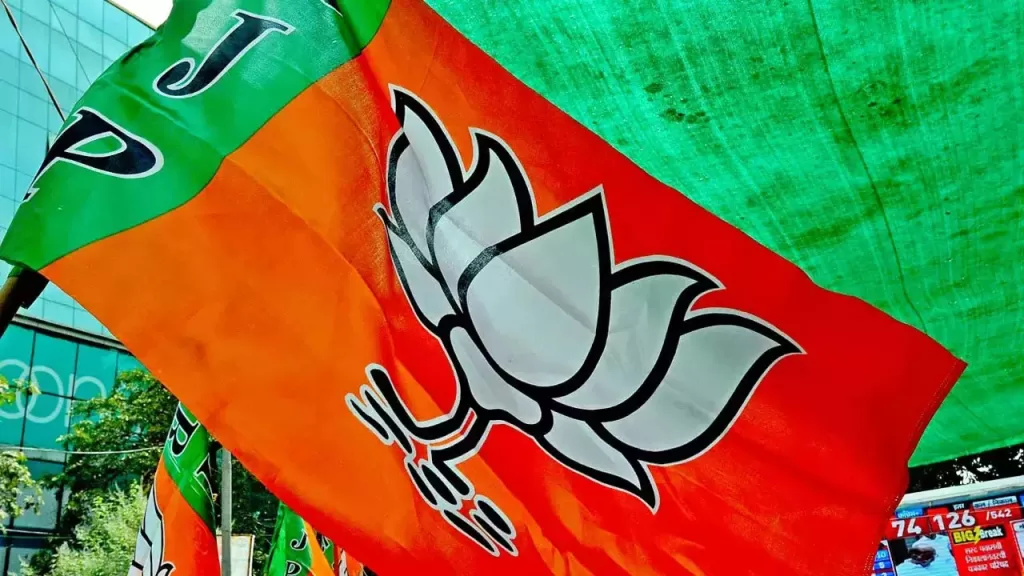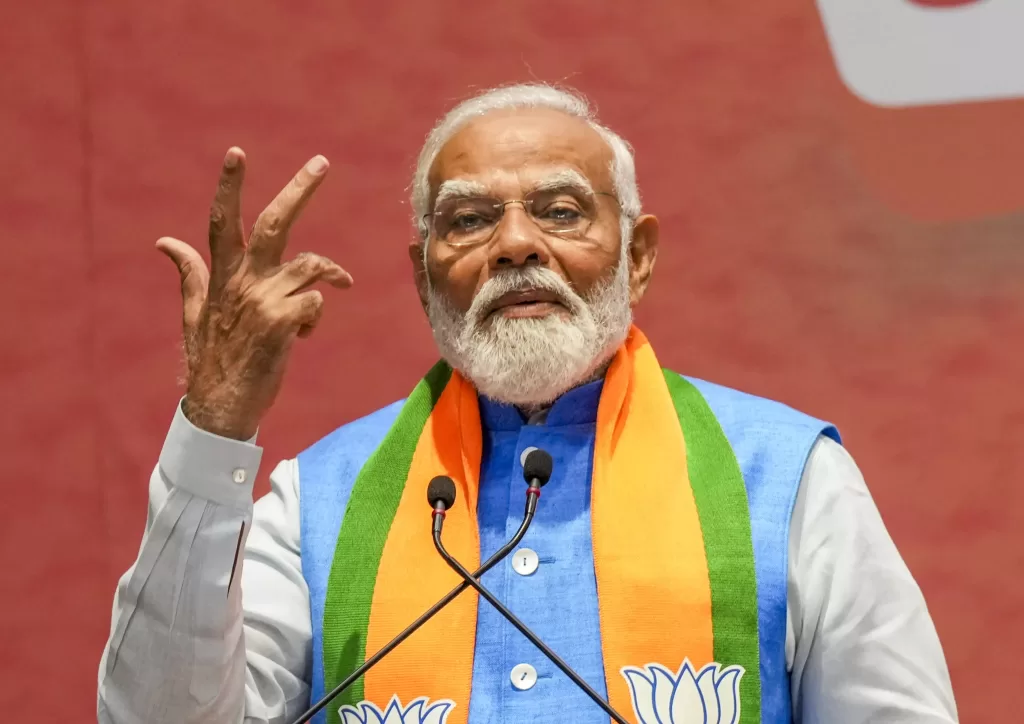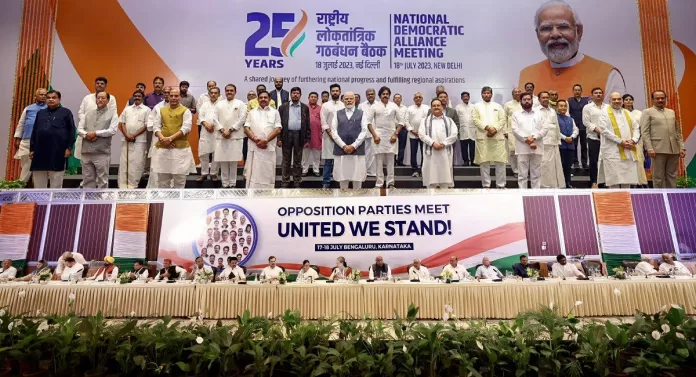Ambedkar, the father of the Indian Constitution and a Dalit by himself, was one of the most farsighted souls of the then Indian Subcontinent, as he had the vision of empowering millions of scheduled castes lingering under the lines of apartheid and discrimination in a fellow-Hindu dominated society. That is why he once turned down an offer of social mobility in religious connotation, as he refused Mahatma Gandhi’s offer to join the ‘temple entry movement’, from where the Dalits (harijans, as they are called as well) are outlawed by virtue of their so called ‘inferior’ race by the ‘superlative’ Brahmins. Rather, he sought constitutional guarantees for them in an emerging post-colonial Republic of India. The rest is history: the Dalits by law were granted equal adult franchise, and special quota in education and jobs. Seventy-five years down the line, they are an indispensable component of Indian democracy,
Constituting more than 25% of the populace, and a staggering 18% vote bank, the Dalit-Bahujan’s turned the tables of electorates in the 2024 general elections. Conscious of the constitution, as they are, they rallied with the fear that BJP with a thumping 400-plus seats in a cameral of 543 will change the spirit of the constitution, and that would tantamount to losing their privileges and the right to exist in a society that is increasingly on the edge of radicalism. Thus, they relived the mandate that Ambedkar had ordained for them and voted with the opposition parties, especially in the thickly-populated state of Uttar Pradesh against the saffron-BJP.
The vote swing went to Samajwadi Party (SP) and, to cite an example, the BJP lost in Mohan-lal-ganj after 10 years. Moreover, the Saffron lost half of the seats in UP, which constitutes 8 per cent votes, as compared to the 2019 Lok Sabha election. The Dalits proved their sense of consciousness, and the BJP despite being in power is a step short of realising its agenda of segregating the landscape on the premise of religious monolithicism.
So did the egalitarian Indians at large, as for the first time in Indian parliamentary history a grand alliance, I.N.D.I.A., was fomented to protect the secularist credentials of the constitution, and to ensure that the country of 1.25 billion should not be turned into ghettos of racial and religious conclaves. More than defeating the BJP, the intention was to protect the civil liberties of the people. It is a commendable get-together, per se, and deserves due appreciation.
Notwithstanding the assumptions, whether the BJP in practice wanted to amend the constitution, or it was an hoax, and enforce a unilateral civil code vetted on the profiling of nothing but Hinduism, the fact that it was denied even a simple majority and was restricted to 240 seats of its own is the beauty of Indian democracy, and its empowered and independent electoral institutions. Despite odds of highhandedness, as in any other evolving society, the Indian voters proved their utter commitment to the heterogeneous mosaic, and out-rightly rejected communalism.
Even the massive vote bank that the BJP managed to retain by returning to power was more premised on developmental works, and the word of mouth that was kept in their respective constituencies. BJP this time had to put up a fight, as there was no walkover anywhere across the country. The Southern Indian states upheld their liberal image, and the Bengal and East took the regional wave. It is startling, and eulogising, to learn that the BJP was routed in the ‘temple constituency’ of Varanasi, the hotbed of Ayodhya-Babri Masjid, as voters looked the other way round.

This is appreciative electoral-ism, and kudos to the Hindu vote bank that went on to distinguish between political alignment and societal-otherness in all humility. It is worth mentioning that the NDA alliance (BJP, RSS and allies) support base was eroded from 41% in 2019 to 35%; and the Congress-combine (I.N.D.I.A.) grabbed 18% more votes.
The 2024 election will long be remembered for breaking a set of myths that had crept too deeply in Indian body-politick. The mantras of Hindutva, and Akhand Bharat, are now literally history. The BJP’s politburo — though quite successful in riding a tide of fervour and supra-religious nationalism among its supporters, at home and especially the diaspora, failed to translate it into a 400-plus majority in the parliament. For the first time, the BJP will have to remain obliged to its divergent Hindu allies on the floor of the house, and the obsession of renaming India as ‘Bharat’ or going for a surgical amendment to make it a ‘Hindu state’ has ended for good. This is no small achievement that none but the Indians, themselves, had flagged as a feather in their cap – by upholding the tenants of diversity in politics. Another important feast that is worth celebrating is that Muslim-bashing has lost its currency in the electoral politics of India. The BJP and its hardline associates went out of their way to sell a narrative of Muslims allegedly being anti-state, but that did not work. This is not to say that there isn’t a Muslim vote bank for the BJP. It does have one, but the pyrrhic victory of BJP proved that it is not worth a salt.
Politics of alienation had a cost for BJP itself, as the learned Indians, who are too sensitive of their interwoven culture of diversity, leaned exponentially toward the anti-BJP cluster to make a sound political point. And that was heard in solemnity as the BJP today is just another political party in India, as many other countries have their radical segments of their own, and not one that is out to incarnate a ‘New India’ of Ashoka the Great or Chhatrapati Shivaji Maharaj. The 2024 election proved that the cult of BJP is waning.
So what’s next for India?
Prime Minister Narendra Modi’s 3.0 dispensation will be closely monitored more by the Indians, than any of the estranged neighbours or major powers. Modi, who is now in the league of Jawaharlal Nehru, and one who has decimated the Congress-Indira to footnotes during the last two decades, forcing it to desperately seek a 28-parties alliance to stand up against the Saffron stride, has an opportunity for disaster. A great orator, that Modi is, and one who knows how to charm his audience by burying reality beneath his charisma, should — and must — foment a narrative of ‘nationalism’. That is where he can regain the lost vote bank, and keep a vast country simmering with ethno-lingual and communal fissures united and peaceful. It’s high time for the third-term premier to realise that it is not all about pushing Pakistan to the wall, or playing to the gallery when it comes to Muslim communalism, but it has much to do with the image that India has carved out for itself as the fifth biggest world economy with a GDP of $3.417 trillion, and an emerging regional power. How can politics of connivance and exigency be made a modus operandi of statehood, to the displeasure of an overwhelming number of populace who take pride in pluralism and diversity.

Modi has to start looking inwardly to take India ahead, and likewise strike a congenial understanding with all of its neighbourhood. Pakistan is the Achilles heel, and all it requires is an olive branch with utmost statesmanship. The beginning of third term, regrettably, was made with some un-ceremonial remarks from the Indian Foreign Minister, Dr S. Jaishankar, as he put the cart before the horse by saying, talks should be over ‘cross-border terrorism.’ That ingredient may be, and is an issue, in the checkered bilateralism but spelling it on the eve of inauguration was unwarranted. Likewise, Pakistan’s leadership was not invited at the oath-taking, paving enough space for an already jingoistic and hawkish media and political spectrum, on both sides, an opportunity to once again harp the tune of vendetta. This has to end, and sooner the better.
India and Pakistan have lived as unpleasant neighbours for more than seven decades, and this brinkmanship posturing has not delivered any sanctity to either side. Both are mired in socio-economics revulsion and their straightjacket policies have undermined the fruits of geo-economics. There are no states that do not nurse territorial and geo-political disputes, but the unwillingness on their part not to think and act out of the box is myopic politics. In this age of social media, it is futile to believe that people on either side will keep subscribing to chauvinism, and maintain an ostrich syndrome. No, that will not be the case. The power of vote and being tech-savvy has made the ultimate difference. Time for India, and likewise Pakistan, to cultivate a culture of peace inside-out.





